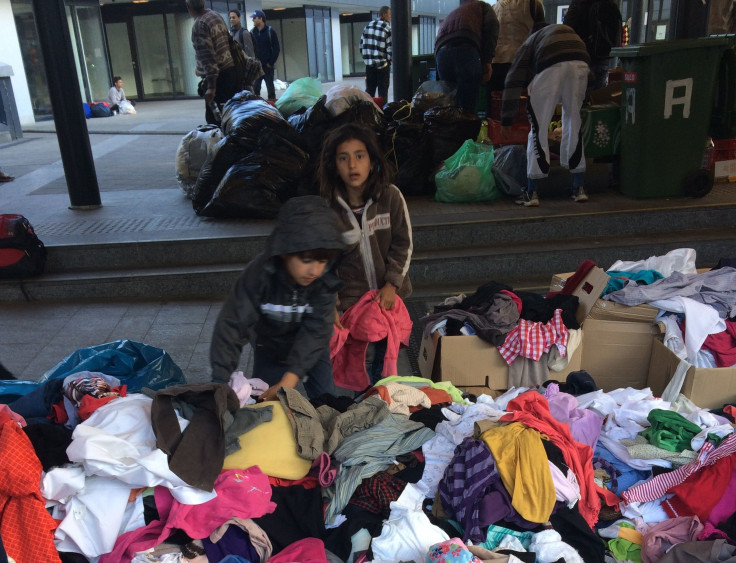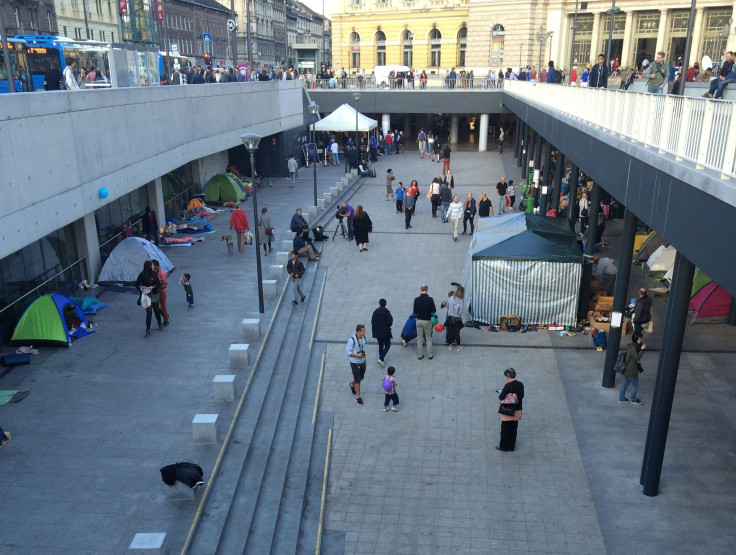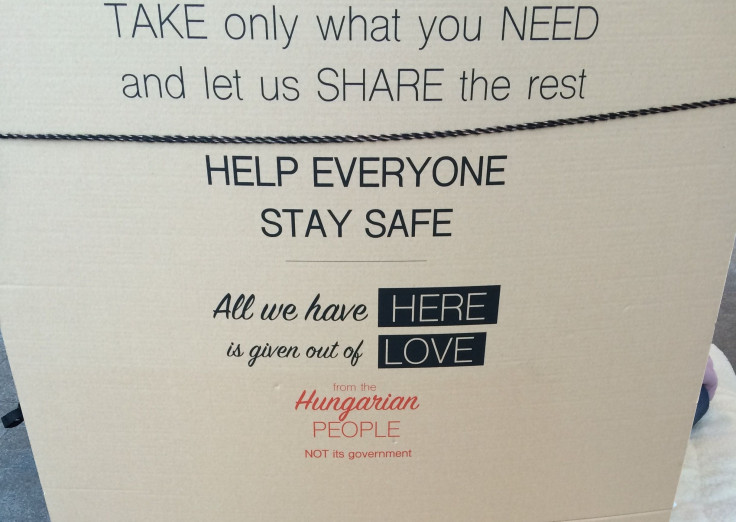Refugee Crisis: With Mass Arrivals, Hungarian Train Station Draws Crowds Of Refugees -- And Curious Locals

BUDAPEST, Hungary -- Dozens of people leaned over the edge of a stone wall, peering into the Keleti train station's outdoor lobby here Tuesday. The Hungarians jostled to get a look at the people locally referred to as "them" -- refugees who've fled from war and economic hardship in the Middle East and North Africa.
Hungary is one of the few countries in the region that has opened its borders to the largest migration to Europe since the end of World War II. The Keleti station is the main setting for receiving those refugees, and after three weeks of mass arrivals, it has become something of a sightseeing destination for locals.
The European refugee crisis is growing more dire by the week. Hundreds of thousands of people have crossed into the European Union since January. Common routes include the passage from Libya by boat to Greece and Italy, by boat from Turkey to Greece and by land through the Western Balkans. Since the beginning of the year, some 102,000 people have entered the EU via Macedonia, Serbia, Bosnia and Herzegovina, Albania and Montenegro.
While many people in Budapest welcome the refugees and offer donations, some are simply apathetic, and others publicly oppose their arrival.

Hungarians have a history of ignoring street dwellers, most of whom are from the ethnic Roma minority group. Those dwellers are now intermixed with the refugees, creating a tense situation between locals and the new arrivals.
That sentiment was visible at the Keleti station Tuesday where most people kept their distance, content to record the scene on Instagram.
Hungarians strolled around the station taking photos of the men, women and children who had arrived from countries like Syria, Iraq and Afghanistan. They pointed and whispered, as though trying not to disturb the swarms of refugees below in the lobby. The families, some with newborn children, are living in tents or on mattresses on the cement. Men, women and children dig through the heaps of donated clothing and pick up food supplies in makeshift aid tents.
People walking past the train station on their way to work or who use the local metro stop tended to pause for a moment to glance down at the refugees' camp.
Few have actually attempted to speak to the refugees, though. There are two local humanitarian organization providing voluntary services at the station and some people have donated clothing and food. The government is doing "nothing," said Dora, a female volunteer with MigrationAid, one of the few aid groups helping refugees in the country. (She declined to give her last name.)
"We aren't affiliated with the government at all. All of our donations are private. We haven't asked the government for any help. I mean, really, we shouldn't need to," Dora said, throwing her hands up in the air at the scene around her. "We do what we can, but there is so much more that needs to be done."

Representatives with MigrationAid at Keleti station said Tuesday they are expecting thousands more refugees to reach Budapest from the Serbian border, an influx they call "the second wave." In the meantime, the refugees living in Keleti say they are waiting for family members to join them before making the journey to Germany.
Samil Faluly, a Syrian man from Aleppo, said he was waiting for his two brothers to arrive in Budapest in the next few days.
"The situation on the Serbian border is hard, but it is not as hard as other countries like Greece and Turkey," he said, dipping a piece of white sandwich bread into a jar of hummus. "The situation here is good for now. I have a place to sleep and eat, but it is not someplace I will stay forever."
Ian, a Palestinian from Gaza who also declined to give his last name, said he doesn't want to stay in Hungary because there is little opportunity for him here.
"The government isn't doing anything for us and the economy isn't good," he said. "It is hard to get a job. There are other places in Europe where things are easier."
© Copyright IBTimes 2024. All rights reserved.











